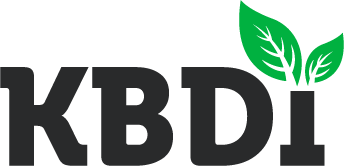Are you an aspiring dietitian seeking to pursue a dietetic internship or a graduate degree program? These programs usually require strong letters of recommendation to offer insight into your skills, qualifications, and potential as a future professional. This aspect of your application may seem a little intimidating. Who should you ask? How do you start building strong relationships with your professors and mentors? There is no need to worry! In this blog post, we will explore the best steps for obtaining letters of recommendation for dietetic internships to help you navigate this crucial aspect of the application process.

1) Build Strong Relationships:
Developing meaningful relationships with professors, supervisors, and mentors is key to obtaining strong letters of recommendation.
You can standout to professors by:
- Engaging in class discussions. Contrary to popular belief, you do not need to receive an A in a class to ask for a letter of recommendation!
- Attending office hours even if you don’t have questions on the course content.
- If you’re doing well in the class, you can ask for higher level questions about the course content. You can also ask your professor more about their career path or advice on preparing your DICAS application.
You can standout to supervisors and mentors by:
- Volunteering to take on new or difficult roles
- Demonstrating your willingness to be a team player
- Mentoring others and taking a leadership role
By showing your dedication and enthusiasm, you can create lasting connections that will support your future endeavors and help you secure excellent letters of recommendation.

2) Choose the Right Recommenders:
When selecting individuals to write your letters of recommendation, consider their familiarity with your work and accomplishments. Ideally, your recommenders should be able to speak to your:
- Academic abilities
- Work ethic
- Leadership potential
- Interpersonal skills
Select individuals who can provide specific examples and highlight your strengths effectively.
3) Provide Relevant Information:
Help your recommenders write a personalized reference by providing them with useful information about your accomplishments, experiences, and career goals. Share your resume, personal statement, academic transcripts, and any other documents that might provide them with a comprehensive overview of your qualifications. Consider writing a brief summary highlighting the specific points you would like them to focus on in their letter. This is helpful for professors that might be writing dozens of letters. It can also be helpful for references that aren’t familiar with the DICAS application process.
Your reference might also have questions about the DICAS portal. Once you submit your references contact information in DICAS, they will receive an invitation to fill out a recommendation form.
The form has two parts:
- A list of characteristics & qualities that they will rate you on based on their work with you. The ratings go from 1 (unsatisfactory) to 5 (outstanding).
- Space to list your strengths and weaknesses. Your reference will also have the option to attach a longer letter of recommendation in addition to completing the form. Most programs prefer both the form and a longer letter of recommendation.

4) Request Letters in Advance:
Give your potential recommenders a decent amount time to write a compelling letter on your behalf. Reach out to them well in advance of application deadlines. Preferably several months ahead! This approach allows them to consider your request, gather their thoughts, and give themselves enough time to craft a well-written recommendation. At a minimum, you should give your reference at least 30 days-notice to write an outstanding letter of recommendation.
5) Follow Proper Etiquette:
When requesting a letter of recommendation, it’s important to be respectful and professional. Make your request in person, if possible, or via a virtual meeting. Asking in person will allow you to discuss your goals and the programs that you’re applying to. You’ll also get a sense of how strong the recommendation will be. If a meeting isn’t possible, a well-crafted email is appropriate, but make sure to ask them to be a reference before sending over all your information.
Clearly communicate the purpose of your application and why you believe they would be an ideal recommender. Be mindful of their time commitments and offer them an opportunity to decline if they feel they cannot provide a strong recommendation.

6) Provide a Reminder:
As the application deadline approaches, it is courteous to send a friendly reminder to your recommenders. This reminder should include important dates, submission instructions, and any other relevant details. Express your gratitude for their assistance and emphasize your enthusiasm for the program or internship.
7) Follow-Up with Appreciation:
Once your application process is complete, express your gratitude to those who wrote your letters of recommendation, whether you were accepted or not. Take the time to send a personalized thank-you note or email, acknowledging their contribution to your success. This gesture not only shows your appreciation but also strengthens your relationship for future interactions.
Obtaining strong letters of recommendation for a dietetic internship program requires careful planning, relationship-building, and effective communication. By following the steps, you can boost your chances of obtaining strong recommendations that highlight your qualifications and potential. Remember, building strong connections and maintaining professional relationships will not only aid in your current applications but also support your future career aspirations in the field of dietetics. Good luck!

